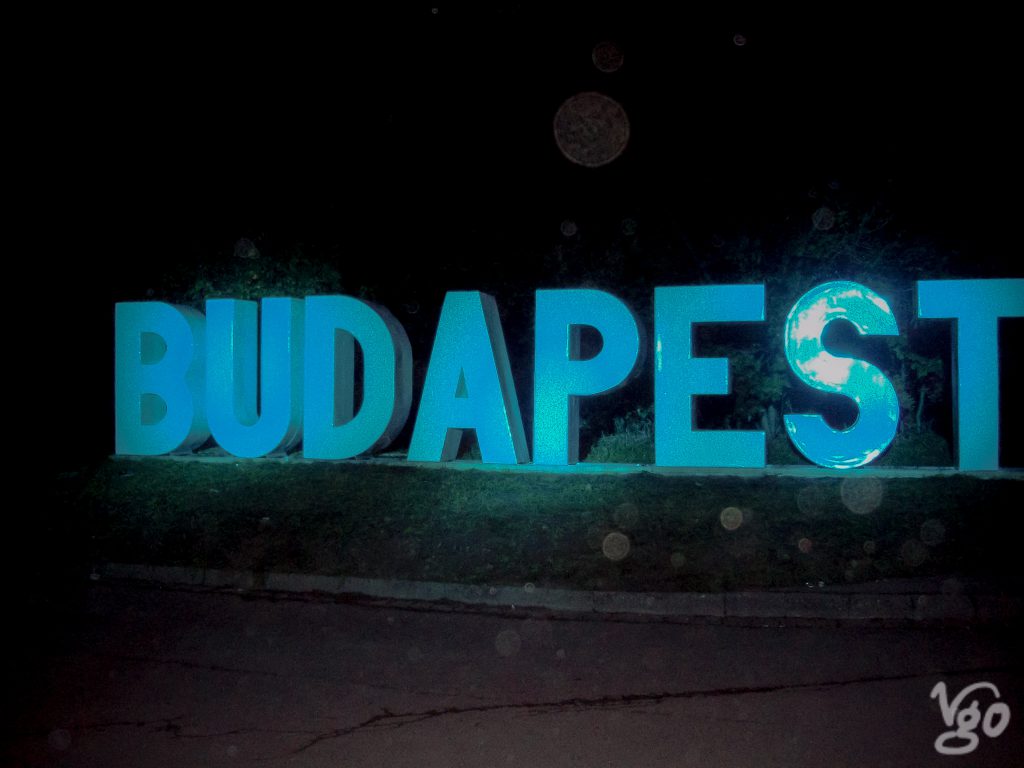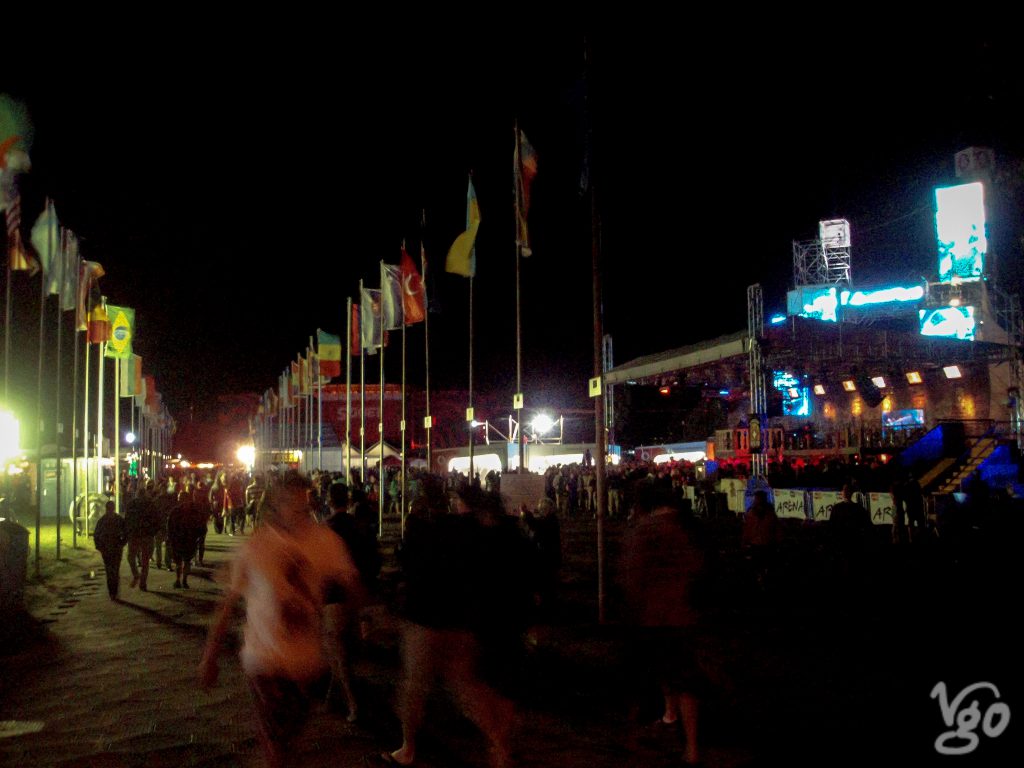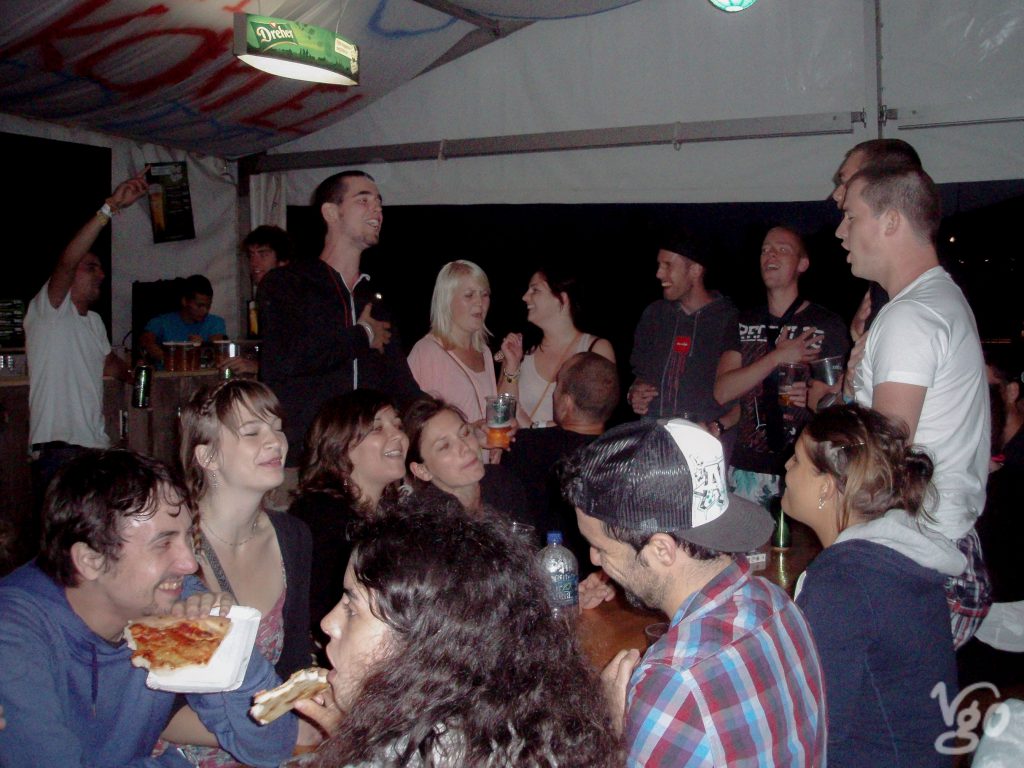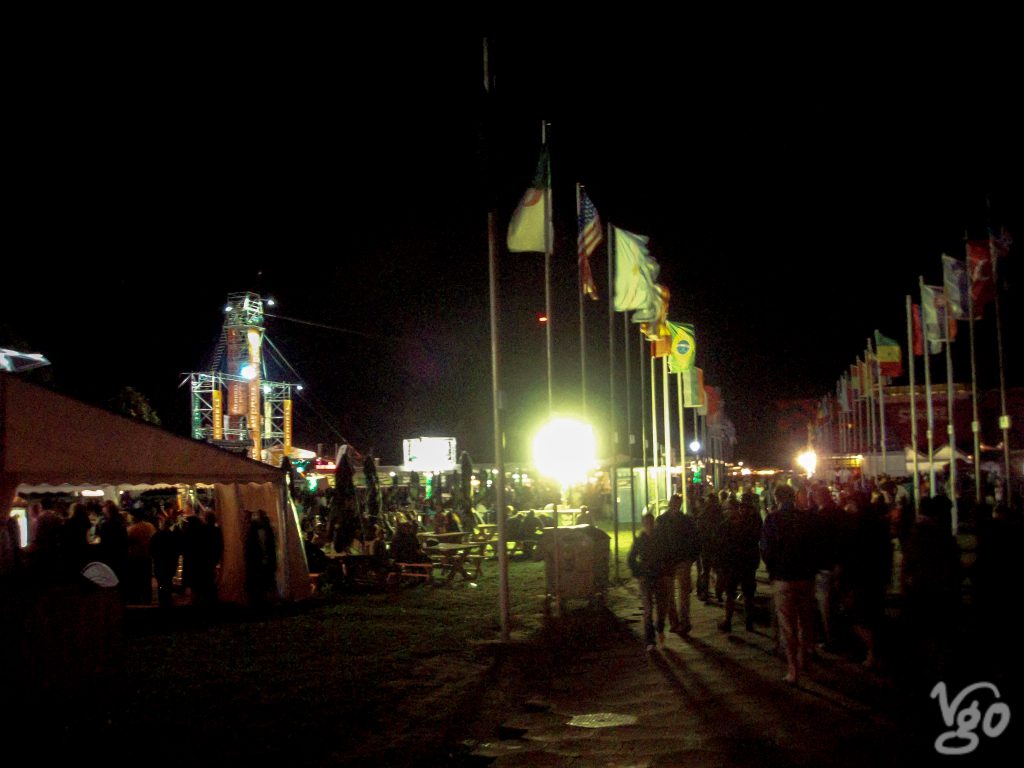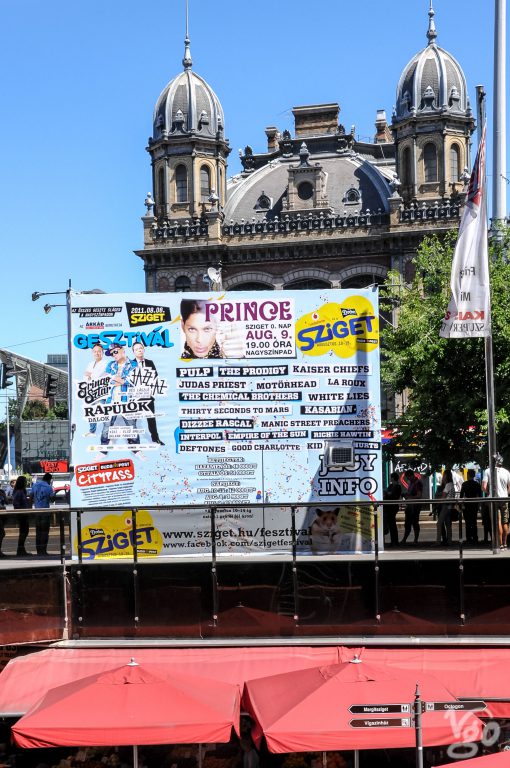Head: Ibs Sallah
Towards Plesse fortress
Sziget 2011
Ten years ago, I attended Sziget, one of the biggest music festivals together with a friend. We pitched our tent after the downpour left the campsite in ankle-deep mud and puddles, which evaporated the next morning in the 35+°C that would heat up the scene for the next six days. Sziget, located on an island in the Danube river in the heart of the Hungarian capital Budapest, is huge: 6 days, one main stage, a few big ones, and all in all 60+ venues, more than 1000 acts, and some 400,000 visitors. The one in 2011 was voted “best festival” in Europe. The opening act was meant to be Amy Winehouse, yet she decided to move on two weeks ahead of the festival. Guess who jumped in: Prince! I never thought I’d see that legend of my teenie years live ever – not that I bothered, but hey, here he was, all inclusive. Amongst my favourite performances: Pulp, Chemical Brothers, Flogging Molly, Skunk Anansie, Gogol Bordello, Goran Bregović, and some less well-known acts in the Roma tent where I loved to hang out till dawn.
Plus sides: it does have something for everyone, including food (strong Balkan presence!), and it’s a celebration of diversity, a European kind of diversity. Hence the attempted attack by a Jobbik mob, a Hungarian racist-nazi group, that’s now happily represented in parliament.
Downsides: prices and policies (e.g. limits on bottles of water, packs of cigarettes, etc. to bring to the camping – and on site sales of, for instance, Marlboro only. That sort of monopolized capitalism). The prices make the festival almost unavailable for most locals.
They sing Jerusalem
Someone sings
Gierusalemme, ikhaya lami
And the whole world dances along
Yet another one has claimed that town to be
His home, now
And the whole world dances along
They sang Deus lo vult in 95
To the tune of an Urban pope, the second
And shortly thereafter
Crosses waded knee-deep through blood
Oh holy urban killing field!
Autumn 2020
Mbira (in)tangibility
Mbira is indeed a very “tangible” instrument. Only if you connect with it will it help you to produce the most enticing sound, a phenomenon in which beat mixes with harmony. As of this week, UNESCO recognizes mbira crafting and playing as intangible heritage in Zimbabwe – and also, with the variant name sansi – in Malawi. I’ve written about my experience with mbira elsewhere, so here’s the UNESCO summary video:
While mbira/sansi is less iconic in Malawi, where it is played in the south, it is an iconic instrument amongst the MaShona people that dominate Zimbabwe. Hence the move by UNESCO was met with applause, and Hope Masike – a young and accomplished mbira player and musician featured in some of the media coverage.
Do not tire – Nicht müde werden
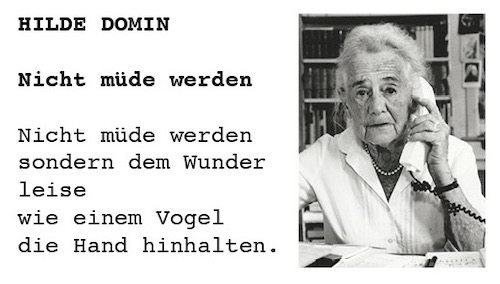
Do not tire
But reach out to the miracle
Softly
Like to a bird
Your hand
https://www.fembio.org/biographie.php/frau/biographie/hilde-domin/
Drones and literature
I’ve been following Teju Cole for a while, and like what and how he writes, and his playlists. This is from seven years ago, about Obama’s drone warfare., his “A reader’s war“, which appeared in The New Yorker in 2013, February 10. Cole starts out by praising the “reader in chief” Obama for his erudition that is so welcome after the anti-intellectual Bush years. Then there are the drone wars, though, one bad guy killed at 17th attempt, the 16 fails leaving uncounted “collateral damage” behind, every one a human being killed – literally – out of the blue. Cole:
Continue readingI sit rigid in my seat, thinking, I don’t want to die, not here, not yet. I imagine those in northwest Pakistan or just outside Sana’a who go about their day thinking the same. The difference for some of them is that the plane is already hovering in the air, ready to strike.
Stolen Rivers
Nile, Niger, Senegal, Orange, Limpopo, Zambezi …
As I was following the online Poetry Africa Festival from KZN, I heard Phillippa Yaa de Villiers recite her poem “Stolen Rivers”, a poem she dedicated to Chiwoniso Maraire. Like the poet, I deeply admire Chiwoniso, I find her very inspirational, and her music enchanting. I have written about her here, and now I allow myself to copy-paste the poem here (> page 2):

Herbst – harvest
Harvest is a superb word to talk about language roots. Quite obviously, the German and English words of the headline share the same word root, one that is backed by shared cultural and climatic geography: Herbst is harvest time. Autumn, on the other hand, is a relative newcomer to the English language, one of the hundreds and thousands of words borrowed (and never given back, to quote a bonmot well known amongst English language historians) from Latin and/or French. What fascinates me about plucking out linguistic roots is that it’s like opening a window into the history of a speech community, and ultimately of all of mankind. Language roots are ultimately shared by all humanity, even if language should have developed independently in different places. Over time, we kept on mixing – genetically as well as culturally. So, especially for those who believe in cultural purity, or the existence of ‘pure’ nations and races – let me propose this challenging piece of language history: German Herbst (‘autumn’) and English harvest apparently have Semitic roots!


































